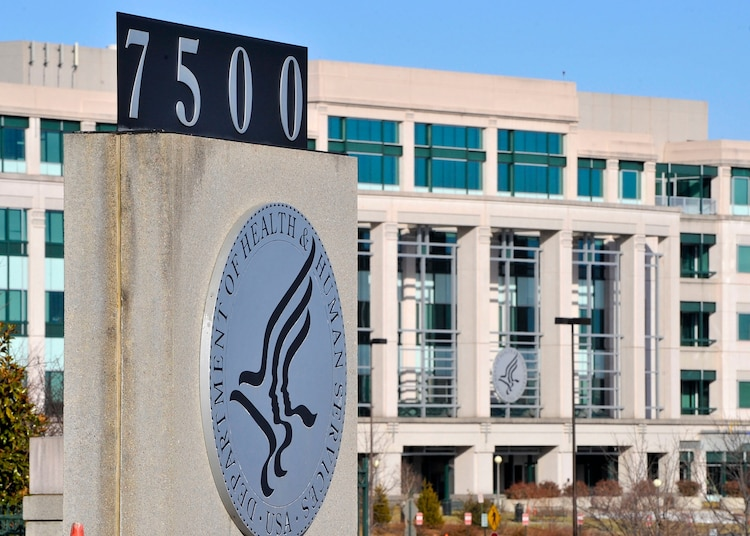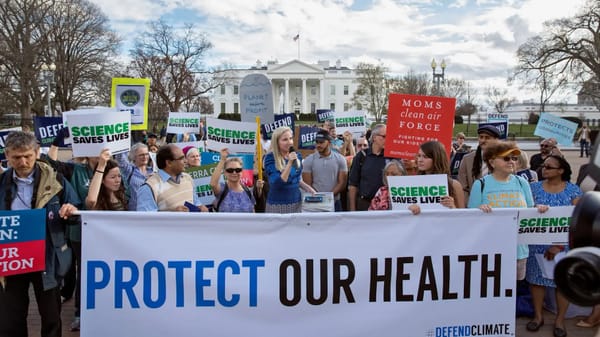Medicaid Expansion in Peril: 9 States Face Immediate Coverage Losses if Federal Funding Is Cut
As Donald Trump returns to the White House and Republicans assume complete control of Congress in 2025, millions of Americans could lose their health coverage if GOP leaders follow through on plans to cut Medicaid funding.

By Chuck Beaton | DayMark News
As Donald Trump returns to the White House and Republicans assume complete control of Congress in 2025, millions of Americans could lose their health coverage if GOP leaders follow through on plans to cut Medicaid funding. In nine states, trigger laws tied to federal funding levels could swiftly roll back Medicaid expansion, leaving more than 3 million people without coverage.
These laws, enacted to ease Republican lawmakers’ concerns over financial risks, automatically end Medicaid expansion if federal funding drops below specified thresholds. States at immediate risk include Arizona, Arkansas, Illinois, Indiana, Montana, New Hampshire, North Carolina, Utah, and Virginia.

The Stakes for Medicaid Expansion
Medicaid expansion, a cornerstone of the Affordable Care Act (ACA), has extended health coverage to an estimated 21 million low-income Americans since 2014. The program has significantly reduced the U.S. uninsured rate by broadening eligibility to adults earning up to 138% of the federal poverty level (about $20,783 annually for an individual). The federal government currently covers 90% of the costs for expansion populations, far exceeding the typical federal match of about 57% for traditional Medicaid enrollees.
However, this higher federal match rate has long been a target of conservative policymakers, who argue the program is too costly. If Congress cuts federal funding, states with Medicaid expansion could face substantial budgetary challenges. Even states without trigger laws would be forced to evaluate whether to continue funding the program on their own, said Renuka Tipirneni, an associate professor at the University of Michigan School of Public Health. “Decisions to keep or roll back the expansion would depend on the politics at the state level,” she noted.
States at Immediate Risk
Trigger laws in nine states make Medicaid expansion particularly vulnerable. Six of these—Arizona, Arkansas, Indiana, Montana, North Carolina, and Utah—voted for Trump in the 2024 election, underscoring the political alignment behind these policies. Most triggers are activated if federal funding drops below 90%, with Arizona’s threshold at 80%.
Montana’s law offers a slight reprieve, allowing Medicaid expansion to continue if lawmakers allocate additional state funds. However, Montana’s Medicaid expansion faces a deadline in 2025, when lawmakers must reauthorize the program. Across all nine states, between 3.1 and 3.7 million people are projected to lose coverage, according to estimates by KFF and the Georgetown University Center for Children and Families.
Three additional states—Iowa, Idaho, and New Mexico—have laws requiring governments to mitigate financial losses from reduced federal funding without immediately ending Medicaid expansion. Including these states, the number of at-risk enrollees climbs to 4.3 million.
A Historical Precedent
Trigger laws for Medicaid expansion echo those enacted by conservative states to preemptively ban abortion following the 2022 Supreme Court decision overturning Roe v. Wade. These laws allowed abortion bans to take effect immediately after the ruling, underscoring their ability to enact sweeping policy changes with minimal legislative action.
In the Medicaid context, triggers were designed to assuage skeptical lawmakers by ensuring states could withdraw if federal funding declined. However, this mechanism makes it easier for states to roll back health coverage without legislative debate.
“Triggers make it politically easier to cut coverage because lawmakers don’t have to take action,” said Edwin Park, a research professor at the Georgetown University Center for Children and Families.
GOP Plans and Potential Cuts
While Trump and congressional Republicans have yet to outline specific Medicaid proposals, recent recommendations from the Paragon Health Institute provide a glimpse into potential changes. Paragon, led by former Trump health adviser Brian Blase, has proposed phasing down the 90% federal match rate starting in 2026, reaching parity with traditional Medicaid enrollees by 2034. This plan would also allow states to restrict Medicaid expansion coverage to individuals earning up to the federal poverty level, rather than 138%.
Such changes would shift significant costs to states, forcing them to decide whether to cover the gap or end expansion entirely. In Arizona, where the Medicaid expansion trigger is tied to an 80% federal funding threshold, finding additional state funds would be a “tough sell,” said Daniel Derksen, Center for Rural Health director at the University of Arizona.
The Broader Impact
Nearly 25% of Medicaid’s 81 million enrollees are covered under expansion, highlighting the program’s importance in providing access to healthcare. Any reduction in funding would disproportionately affect low-income adults, including those in rural and underserved communities.
“If states drop coverage, there would likely be an increase in the number of uninsured, which would limit access to care across red and blue states,” said Robin Rudowitz, vice president and director of KFF’s Program on Medicaid and the Uninsured.
While states rarely reduce eligibility for social programs like Medicaid, the significant financial strain posed by a federal funding cut could compel even Democratic-leaning states to reconsider expansion.
A Vulnerable Safety Net
Medicaid has faced similar threats in the past. In 2017, Republican leaders attempted to cut federal expansion funding as part of their broader effort to repeal the ACA. That legislation ultimately failed, underscoring the program’s vulnerability to political shifts in Washington.
Today, with Trump’s return to the presidency and Republican control of Congress, Medicaid expansion is once again in jeopardy. Whether states will rise to meet the challenge—or let trigger laws dictate the future of healthcare for millions—remains uncertain.
“All states would likely need to evaluate whether to continue expansion coverage because it would require a significant increase in state spending,” Rudowitz said. The stakes couldn't be higher for the millions of Americans who depend on Medicaid for their health and well-being.
At DayMark News, we are committed to exposing the rise of authoritarianism and its threat to democracy. In a time when disinformation spreads like wildfire and democratic institutions face relentless attacks, we need your support to keep the fight alive.
Investigative journalism is our weapon against authoritarian ideologies. We delve deep to uncover the truths others would rather keep hidden, while providing actionable resources to empower individuals like you to defend our democracy.
We believe in transparency, integrity, and the power of a well-informed public. But maintaining a platform dedicated to fearless reporting and mobilization requires resources. We refuse to bow to corporate interests or compromise our mission. That's why we turn to you — our community.
Every donation, big or small, helps us continue our work. With your support, we can produce the in-depth analyses, breaking news, and educational tools needed to resist the rise of extremist movements and protect democratic values for future generations.
This fight belongs to all of us. Together, we can ensure that democracy not only survives but thrives. Please consider making a contribution today to keep DayMark News strong and independent.
Donate Now: Because Democracy Can't Defend Itself.





